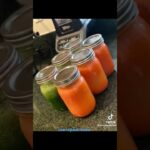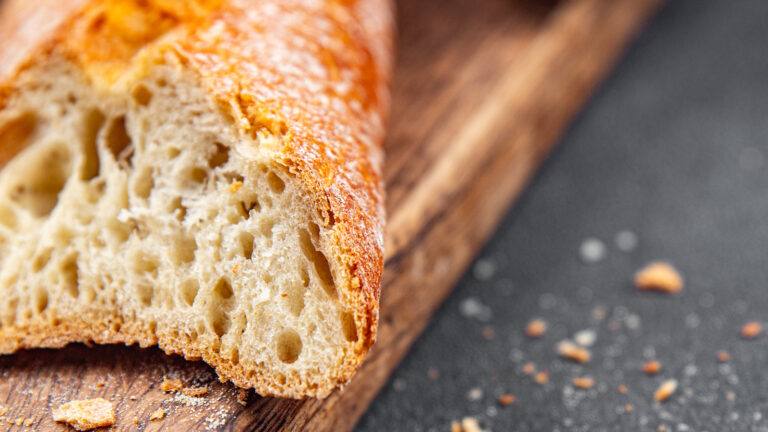An “edible meadow” designed to improve gut health is to be displayed at the Chelsea flower show this year. The two gardeners behind the “microbiome garden” say it will be filled with flowers that can enhance gut health by being eaten or just walked past. The human microbiome – the trillions of microbes that live on and in humans, primarily in the gut – is influenced by the bacteria and other microorganisms people come across in everyday life. “Everywhere outside, every surface of a tree, a plant, leaves, they all contain microbes. Some are good, some are harmful. If you have a diverse landscape you then come into contact with diverse microbes,” said Chris Hull, who co-designed the garden, which will be unveiled in May. Just as eating yoghurt can increase healthy gut flora, so can interacting with plants. Research into this is still in its early stages but peer-reviewed studies have found that gardeners have healthier guts than non-gardeners. The gut keeps the body in balance, getting rid of bad bacteria that can make people unwell and maintaining good bacteria that help break down food and keeps organs going. The importance of the gut to overall health is a topic of increasing research in the medical community, with links to other organs including the brain having been identified. “Digestive issues are so common in this day and age … but through working with the microbiome and our health we can resolve a lot of these issues. Health issues are often linked with our microbiome being out of balance,” Hull said. The key to the microbiome garden is diversity: the more different types of plant, the more different types of microbe. The designers have also tried to demonstrate how to keep the soil healthy, as healthy soil contains more helpful microbes, which are then transferred to the plants we grow and the food we eat. “One of our key plants is a lupin and that is a legume so it’s really good for nitrogen fixing in the soil,” Hull said. “In typical gardens that might be considered a ‘nice garden’, the diversity is nowhere near what you’d have in a meadow. The planting in our garden would be much, much more diverse than in a conventional garden, and we hope visitors can take inspiration from it.” After Chelsea, the garden will be moved to the Apricot Centre in Totnes, Devon, which caters for children in care, giving them space to play and learn on the sustainable farm. Outdoor play in a diverse natural environment full of plants is crucial for child health, said Sid Hill, who designed the garden with Hull. “There’s a Finnish study where they assessed children’s skin microbiome before they inoculated a sandpit in the playground with forest soils. They assessed it again after the children played in the sandpit and found the harmful pathogens on their skins went down and the beneficial microbes went up,” he said. Many of the plants grown in the garden are edible, and eating wild food has also been linked to a healthier gut. The “edible meadow” combines a selection of plants including Persicaria bistorta , Camassia and Lupin luteus , which creates a rich tapestry of yellows, blues and pinks. Although this trio of plants are commonly grown in gardens across the UK, few people know that they are traditional food crops. Hill said: “ Persicaria bistorta has been traditionally harvested from English meadows to make dock pudding since the mid-1800s. Lupins have been historically harvested across the globe as a food source for gut health and were so sacred to the Egyptians that there were even lupin beans found in tombs dating back to 2000BC. “Camassia bulbs were harvested by Indigenous tribes across America for hundreds of years. They would often be baked in earth ovens or cooked on hot stones, making them very tender and sweet. They would be harvested using a specially crafted stick from either wood or antlers. “ Sesleria autumnalis offers a green blanket at this time of the year, covering the ground and acting as the glue that knits the whole composition together. Silene vulgaris has been selected as a filler plant. Its habit is to weave around plants filling gaps, and offers beautiful white oval flowers with leaves that can be eaten in salads and taste like pea shoots.” Hill said: “There are some plants where you eat them, ancient cultures have used them throughout history, and we have lost touch with that. Our garden is exploring lots of those and bringing them back to the fore again. It’s inspired by the history of foraging, tending the land around us for our food … here in the UK we have a strong history of using meadows for our food.” This agroecological system is very different to many modern farming methods, which involve growing a sterile monocrop, he said: “When we grow plants in an agroecological system, that supports or hosts diverse microbial communities on the soil, on the plant roots, on the leaves, and even in the air around the plants. When we spend time in those landscapes they leach on to us and also when we eat those plants they act as a probiotic. When we look at industrial agriculture we grow food that is depleted of these beneficial microbes. So when we eat this food we are missing the vital nutrients and microbes needed.” Asked what readers can do to grow a gut-healthy garden, Hull said: “Growing your own food … perennial crops to get more wildlife in [and] growing more diverse plants.” Hill said: “The amount of things we are discovering with the microbiome is fascinating; we know more about outer space than we do the microbes in our own gut.” Playgrounds should be designed with microbial diversity in mind, he said, “so people understand that we need green, wildlife-friendly, biodiverse playgrounds for their long-term health. If [a child’s] microbiome is compromised because of a lack of access to nature, that will impact them for their whole lives.”
This content was originally published here.



















